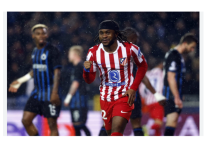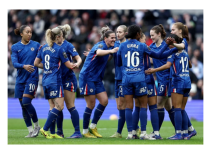When Chimamanda Ngozi Adichie sat with YouTuber Folashade Samagbeyi, she dismantled an age-old myth: that a woman who loves style cannot be taken seriously.
After years of downplaying her passion, the award-winning author revealed why she stopped pretending—because fashion, for her, is more than fabric; it’s empowerment.
“For some people, liking fashion means you’re not a serious person… I was tired of pretending that I wasn’t interested in fashion, when in fact I was,” she said. Her words weren’t just confessions; they were an invitation for women in politics, business, or academia to embrace their femininity unapologetically while commanding respect.
Fashion as National Identity
Adichie has also turned her wardrobe into a cultural statement. She now deliberately chooses Nigerian brands over global luxury labels, even when high-end houses send her free pieces. She calls this choice “fashion nationalism”—a conscious move to elevate homegrown talent and spotlight Nigeria’s rich creative industry. What she wears is no longer just personal—it’s political, cultural, and proudly national.
From Hiding Heels to Wearing Color
Adichie’s journey with fashion has been layered. Growing up in Nigeria, she saw stylish dressing as a sign of pride and respect, thanks to women like her mother. But in the U.S., she often muted her wardrobe, hiding heels in suitcases and sticking to plain outfits in order to be seen as “intellectual.”
With success and self-assurance, that restraint faded. Today, she embraces bold prints, rich colors, and unapologetic glamour, a look that mirrors her voice—fearless, expressive, and unbowed.
Fashion and Feminism Intertwined
For Adichie, fashion doesn’t contradict feminism—it amplifies it. Her influence even reached the runways of Paris when Dior debuted her iconic line “We Should All Be Feminists” as part of a collection. That collaboration proved what Adichie has always believed: clothes can be vessels for ideas, symbols of resistance, and catalysts for change.
Why It Matters
| Theme | Insight |
|---|---|
| Authenticity | She stopped suppressing her love for fashion and embraced it as part of her truth. |
| Cultural Empowerment | Supporting Nigerian designers transforms her style into an act of national pride. |
| Redefining Perception | Challenges the stereotype that intelligence and glamour are mutually exclusive. |
| Visibility as Power | From YouTube interviews to Dior’s runway, her fashion choices amplify her feminist message. |
































